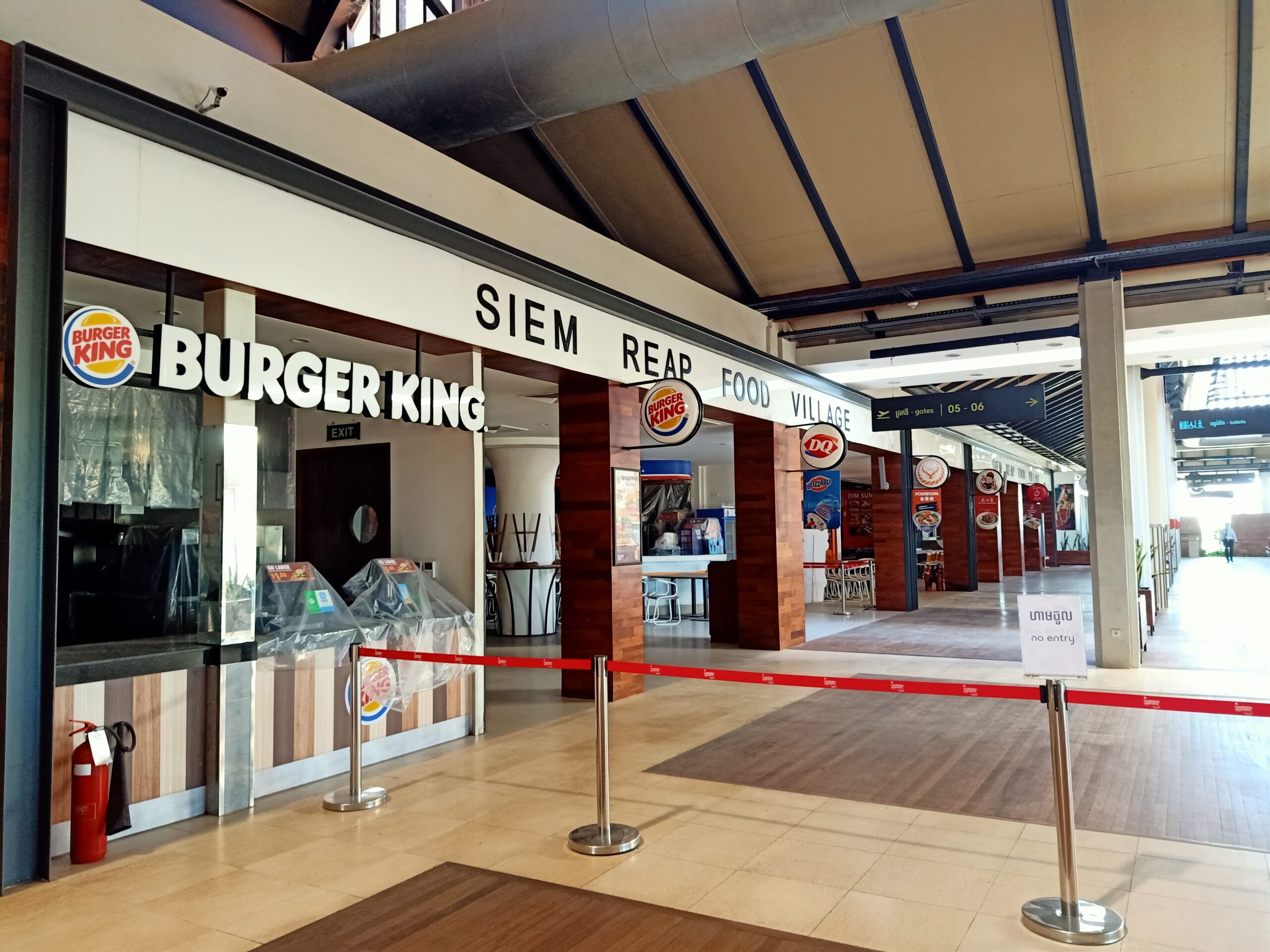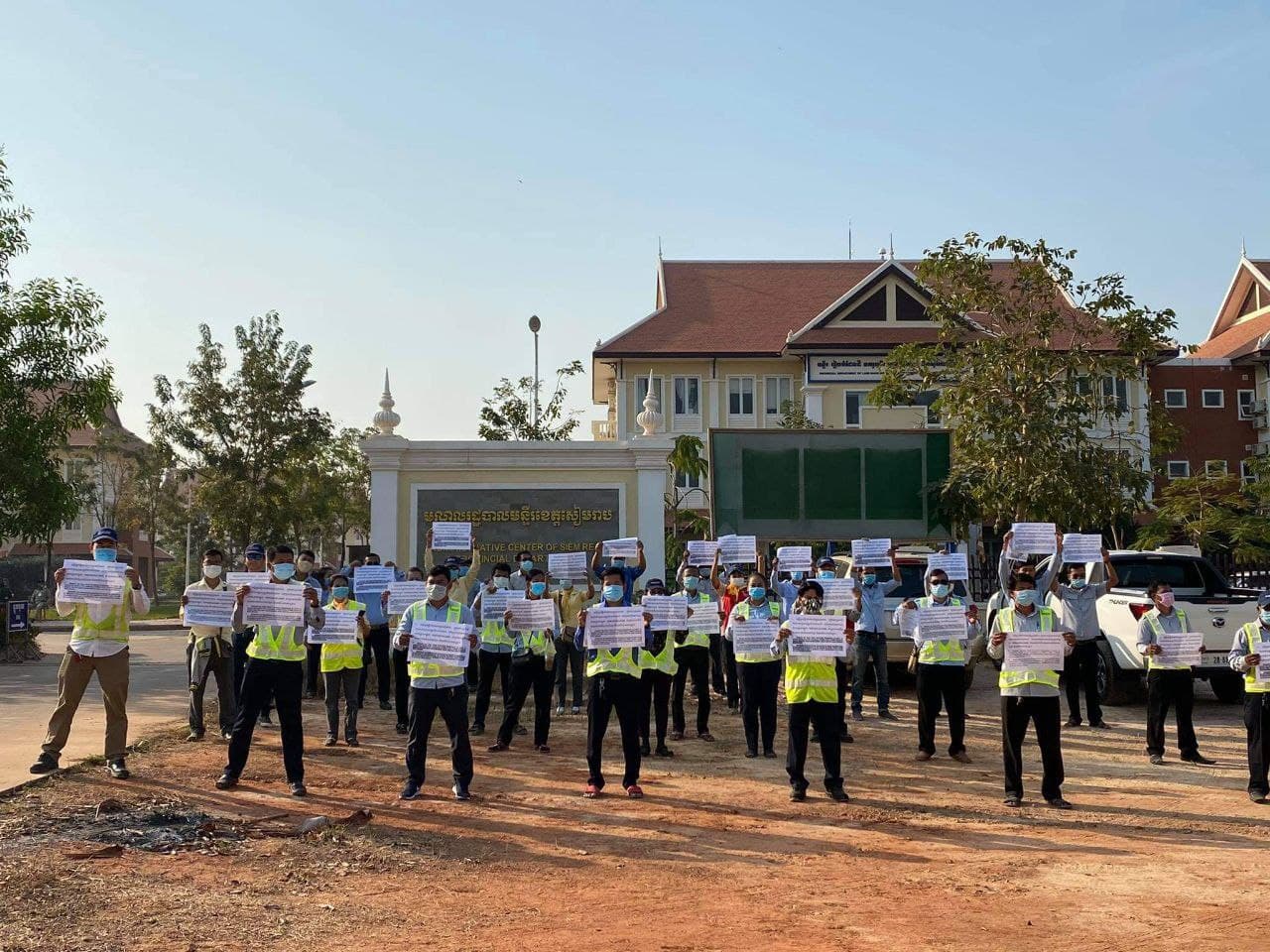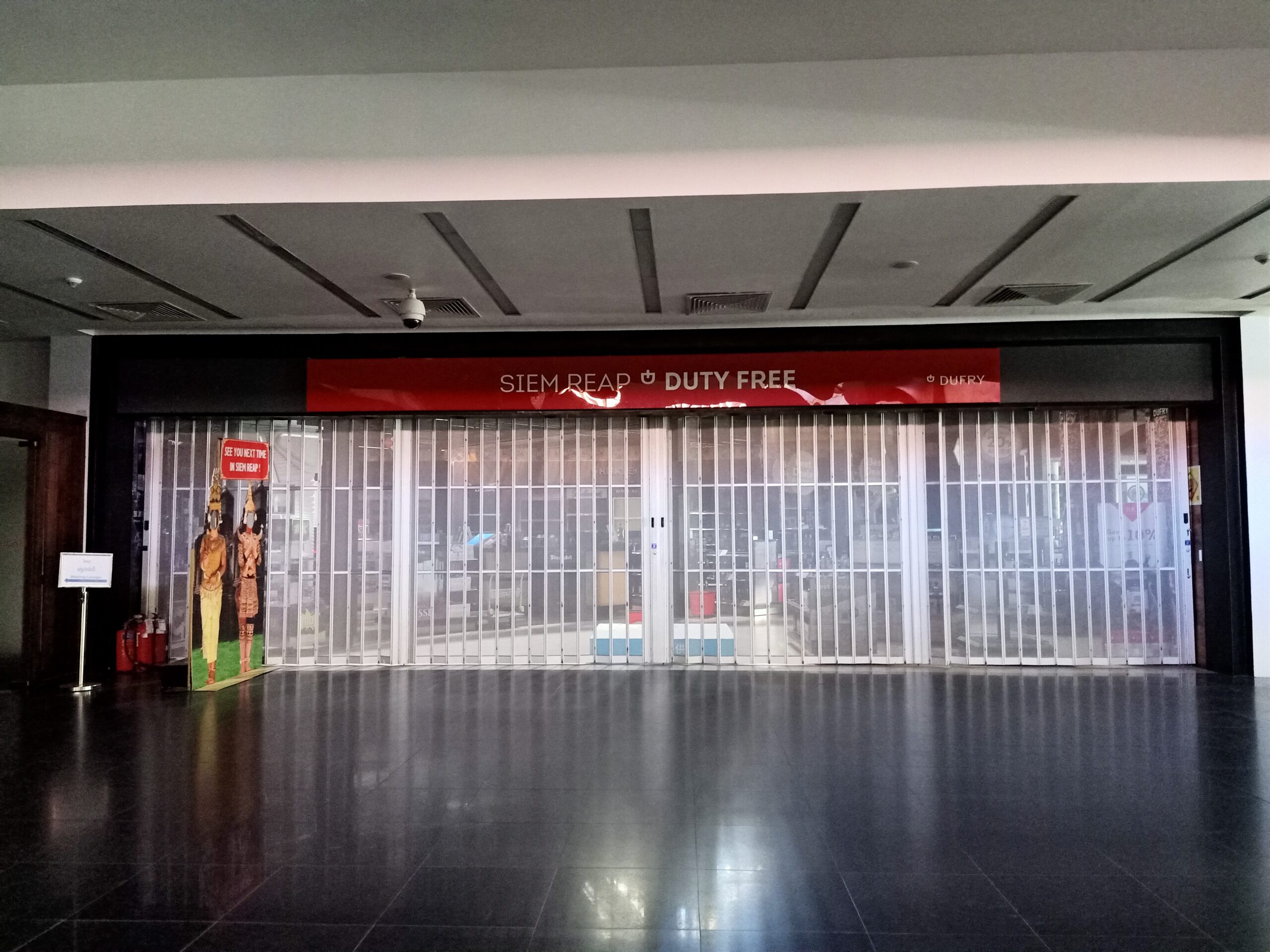An airport check-in employee considers his prospects as he sits in his family home in Battambong province. In under a year, he’s gone from a decade-long employee of Siem Reap International Airport to working without pay for his family’s farm.
Although he’s only making 50% of his former salary on suspension from the airport, he considers himself luckier than the many jobless tourism workers in Siem Reap. But this thought brings him little comfort as he considers what’s next for him professionally and personally.
“I feel like a boat sinking in the middle of the river,” the check-in staff said, asking to go anonymous for fear of repercussions from his employers.
His situation is a consequence of a wider downturn in Siem Reap, once host to 2.6 million tourists a year and until recently a steady gig for tourism workers. But the ruins of a once-great civilisation at Angkor Wat now stand deserted, save for the trickle of locals taking advantage of the lonely grounds. Without tourists, local tour guides vying for a day’s gig, security guards roaming the grounds, and food and souvenir vendors lining the city are left to rely on whatever they can get in the uneasy conditions created by the pandemic.
As employers struggle to cope with the loss of tourist revenue, they balance the unenviable task of preserving jobs on dwindling revenues. Nowhere is this more true than Siem Reap airport, where the city’s tourism loss is felt succinctly for its 350 baggage handlers, food vendors and check-in employees.
With 130 airport employees already laid off and most others suspended, union negotiations resulting from the December terminations have stalled as tourism shows no sign of returning to anywhere near its original flow.
“It feels like my future is also thrown away because I thought that job was for a long time, it was going to be something lifelong, secure,” the anonymous employee said.
In its heyday in 2019, the airport welcomed nearly four million passengers, over 98% travelling for leisure, who went on to utilise hotels, museum tours, and local goods. But by 2020, this decreased 85% to 619,000, according to Norinda Khek, the communications and public relations officer for Cambodia Airports – which owns the Siem Reap, Sihanoukville, and Phnom Penh airports.
As Cambodia’s February 20 cluster outbreak worsened, Khek said the number of passengers dropped even further from their one to two domestic flights a week, hitting zero flights in April in an “unprecedented track record”.
“In 2019 we had an average of 3,300 [commercial] flights per month. Today we unfortunately have no flights,” he told the Globe.

While virtually all sectors of the Cambodian economy have been hit hard by the pandemic, tourism is perhaps the only that has seen its customer base virtually wiped out as tourists remain unable to enter the Kingdom.
In March, a report released by the Center for Policy Studies documented the unique challenges faced by tourism workers in Cambodia, such as being forced to cut food expenses more sharply than any other sector. Those working in this field are eligible for a monthly $40 government suspension allowance but not for a $30 employer co-pay, as used in the garment and footwear sector.
Chan Sophal, director of the Center for Policy Studies, says that tourism workers also lack the organisation and communication of other large groupings of workers, such as in garment factories.
“I think one key feature is the garment workers are more organised, because they tend to be more numerous in their workplace,” he said, adding that tourism workers are also reliant on private rented rooms, creating problems in identifying households in need of aid.
“So the communication and information exchange can be expected to be better than those in the tourism sector. Tourism sector workers are more dispersed.”

Kong Sophal walks out of his new office to take the call. It’s a construction site in Phnom Penh, which he says is a stark difference from the cargo section of the Siem Reap airport where he was working before.
As his savings dwindle for necessary food purchases, he laments that there’s a massive gap from his former base pay of $520 a month – which sometimes went up to $1000 with bonuses as a 14-year employee of the airport – to now just $200 a month. As one of the 130 employees laid off, he began searching for other work to help pay back a loan, currently being serviced by his severance pay.
“Previously I was able to afford paying this debt. It was $390 a month,” he said. “But after getting this new job, I can’t afford to do that, I only pay purely for the interest.”
Sophal received a wage and hour cut from the airport at the onset of the pandemic last year, and says it only went downhill from there. He was finally laid off in December, when he was forced to move to the capital to take a job cleaning and gardening at a construction site to help support his wife and two children back in Siem Reap.
Despite being eligible for skills training and a government allowance, he says he received no support and is struggling to pay back loans, and even the electricity bill for his $30 a month housing.
“It’s really, really tough,” Sophal said. “Sometimes I would sleep at my [construction] site to cut the costs of electricity.”
This refrain is common in the tourism industry nationwide. The check-in desk employee says he needed to move back in with his family because he could no longer afford his rented accommodation in Siem Reap, and his 50% wage is helping his family cover loans. He says he hasn’t received any government support, and relatively few of his friends can afford transportation to get alternative skills training in Siem Reap.
For their efforts, his employer, Cambodia Airports, implemented restructuring plans to internalise outsourced jobs, which saved 31 jobs. Another strategy to manage the loss of business was to offer employees amended contracts, where they would make 80%, and up to 100% for the lowest paid, of their former salaries when called in for work on a rotating basis.
Those who didn’t sign were offered half their former salary and given less opportunity to be called into work, the anonymous employee said. He was among a couple dozen refusing to sign, taking issue with certain added amendments and the legality of changing a contract mid-employment.
“Since March 2020, it’s been a complete overturn of my job and there’s also some changes to the contract,” he said. “For me personally, I did not accept that new contract.”
The people who are interacting with international travellers, their jobs are incredibly important because that interaction stays in people’s mind, and that’s how you get return visits. That could really set back repeated tourism numbers over time
Cambodia Transport Worker Federation president Ron Ravan, as well as other union members, say that the added amendments to these contracts are against Cambodian labour law in that it changes it from an undetermined duration contract to a fixed one, usually for one to three months. As a ramp supervisor, he also refused to sign the contract and is making half of his former pay.
Of the 350 employees, airport representative Khek says 217 are on authorised leave, and the rest work in rotation during minimum service. Khek says the contracts have been temporarily amended, not changed, adding that signing it was completely voluntary. He says Cambodia Airports has gone above the law’s requirement in providing compensation to laid-off employees.
“Despite the unprecedented drop in traffic and activity, our social priority has been to preserve the company and jobs sustainability and to minimise the impact on the employees’ income,” Khek said, adding the airport management has been in regular communication with union leaders, who have rejected their offers so far.
Khek also said offered to rehire employees and reinstate the original pay if operations return to normal in a two-year time period. But as Covid-19 drags on, Ravan says all the union leaders and employees can do is wait.
“They told us to just wait until Covid is over and until all the leaders of the unions have been vaccinated,” Ravan said. “We don’t really have a choice, it’s the risk of getting infected, which we don’t want. If we go to meet online [for negotiations], it’s just kind of fruitless.”

But even if the travel situation returns to some semblance of normality in the coming year, the long-term impact of this period on Cambodian’s tourism scene is yet to be seen.
Solidarity Center country director William Conklin says this extended interruption to the industry could have a lasting impact on the Kingdom’s number of international visitors.
“The people who are interacting with international travellers, their jobs are incredibly important because that interaction stays in people’s mind, and that’s how you get return visits,” Conklin said. “That could really set back repeated tourism numbers over time.”
In the meantime, laid off and suspended tourism workers continue to struggle to find employment during the pandemic. Many tourism workers are now reliant on other ways of earning a living, as the Center for Policy Studies’ study shows only 14% have been called back to work during the ongoing pandemic.
Chan Sophal also says they may struggle with finding other long-term jobs because many of the skills needed for the tourism industry aren’t necessarily transferable to other careers.
“I would think that they could not find permanent jobs easily, so they have to do other things that come their way,” he said. “During the time when the economy was slowing down, there wouldn’t be a lot of jobs opening up.”
Kong Sophal says his life has changed dramatically since the beginning of the pandemic, in an “almost unbelievable” way after working consistently for 14 years.
He has very little hope that things will return to normal, especially after his current pay at the construction site was reduced again when his Phnom Penh neighbourhood was designated a red zone, leaving him unable to go to work.
While the return of his previous tourist-reliant work at the airport is unlikely any time soon, he makes a plea, just in case.
“I have children to feed, I’m living away from my family,” he said. “Please try to appeal to [Cambodia airports], that once they open back, please take us back to work.”
This article is produced as part of a grant from the Solidarity Center, made possible with funding from USAID, to support the publication of stories about issues impacting workers in Cambodia. Find out more here.


